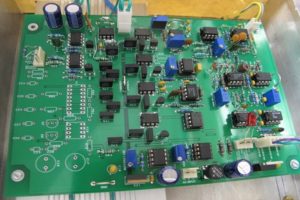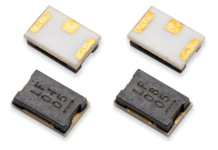
What is Temperature Coefficient of Resistance?
The temperature coefficient of resistance (TCR) is the calculation of a relative change of resistance per degree of temperature change. It is measured in ppm/°C (1 ppm = 0.0001%) and is defined as: TCR = (R2– R1)/ R1 (T2– T1). For high-precision resistors, this specification is typically expressed in parts per million (ppm) per degrees Celsius, with reference to normal room temperature, typically +25°C.
Despite the importance of this specification, individual resistor manufacturers use different methods for defining TCR on their published datasheets. In most cases, this definition does not provide enough information to enable an end user to accurately predict the influence of temperature changes on the resistance value. Where such published TCR variances are of concern, of course, is in their potential to create measurement uncertainty.
Click here to buy All types of Resistors
Particularly, in applications where high-precision resistor performance and temperature stability are absolute requirements. This uncertainty is created when there is insufficient confidence that a TCR specification has been calculated with enough data to allow for the accurate prediction of the true impact of temperature change on resistor performance.
For example, some manufacturers may opt to list TCR as ±5 ppm/°C or ±10 ppm/°C, without reference to temperature range. Others may specify TCR as ±5 ppm/°C from +25°C to +125°C, yet omit data regarding other temperature ranges. In high-precision devices, such as the Bulk Metal® Foil resistors manufactured by Vishay Foil Resistors, published TCR specifications include nominal typical curves, normally from –55°C to +125°C. Those curves define nominal “cold” (–55°C to +25°C) and “hot” (+25°C to +125°C) chord slopes. Their datasheets typically specify the maximum spread for each slope (e.g., ±0.2 ppm/°C and ±1.8 ppm/°C). In the case of a Bulk Metal Foil resistor, a default TCR interpretation of ±5 ppm/°C, for example, would mean that –at any point across the working temperature range– the resistance would not change more than +5 ppm/°C.
The Vishay Foil Resistors brand of Vishay Precision Group, Inc. (VPG) are longtime global industry experts in the design, development and manufacture of reliable high-precision Bulk Metal Foil resistors and power current sensors for a diverse array of applications. Hundreds of standard model configurations are derived from one of the industry’s most extensive portfolios of customer-selectable housings, materials, substrates, and metal foil grade combinations. Advanced manufacturing techniques ensure that resistor designs are performance-optimized for consistent operation to published specifications throughout their useful service life. All VPG high-precision Bulk Metal Foil resistors feature some of the industry’s most favorable TCR specifications, uniformly calculated per stringent industry best practices. This ensures their reliability across all resistance and operating temperature ranges.
This paper shall examine TCR and its “best practice” interpretations, as recommended from VPG’s own vast experience in high-precision resistors. Overall goals shall be to better understand precision resistor performance, as it relates to temperature; to illustrate nuances among and between published TCR specifications, depending upon technology type and a manufacturer’s own chosen calculation method; and to offer further insights for TCR data utilization, as a means of ensuring that a specified precision resistor can reliably perform within its intended application.
Read “Relationship Between Temperature and High-Precision Resistor Performance” in next page


















